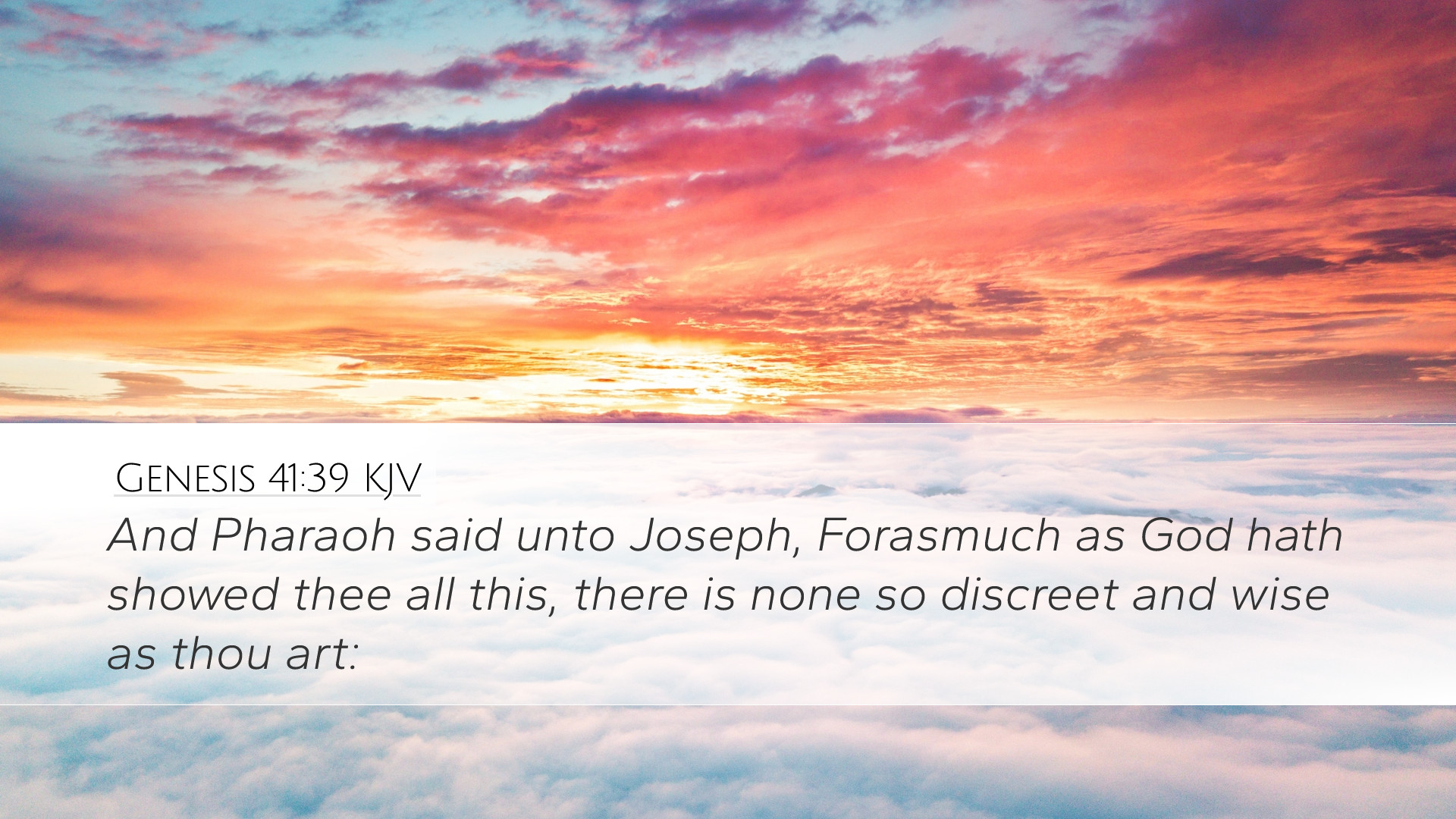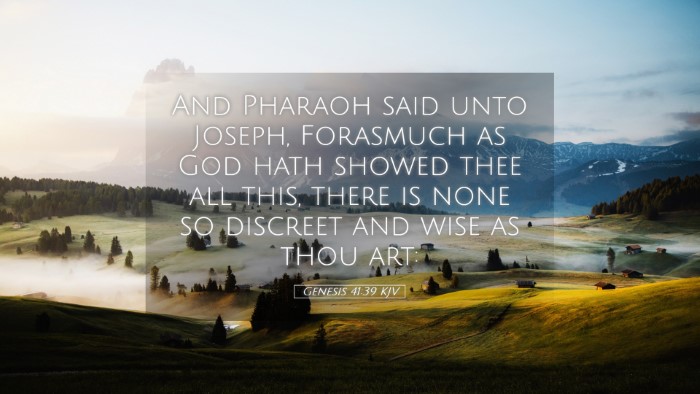Commentary on Genesis 41:39
Genesis 41:39 states:
"And Pharaoh said unto Joseph, Forasmuch as God hath shewed thee all this, there is none so discreet and wise as thou art."
Contextual Overview
This verse occurs within the broader narrative of Joseph's rise to power in Egypt. After interpreting Pharaoh's dreams, which foretold seven years of plenty followed by seven years of famine, Joseph is appointed as the one to oversee the preparation for the impending crisis. This significant moment marks not only Joseph's elevation but also the acknowledgment of divine wisdom in earthly affairs.
Theological Insights
- The Sovereignty of God: The verse articulately highlights God's sovereignty in human history and decision-making. By entrusting Joseph with the task of saving Egypt, God illustrates His providential care and control over events.
- Recognition of Divine Wisdom: Pharaoh's declaration recognizes that Joseph's wisdom is derived from God. This interaction emphasizes the biblical theme that true wisdom begins with the fear of the Lord (Proverbs 1:7).
- Human Instrumentality: Joseph, despite being a mere human, is used as a vessel to accomplish God's purposes. His life exemplifies the notion that God chooses individuals to carry out His plans, which is a recurring theme throughout Scripture.
Analysis of Key Phrases
The phrase "God hath shewed thee all this" signifies the direct correlation between divine revelation and Joseph's competence. Joseph's ability to interpret dreams isn't solely based on his wisdom but is rooted in his relationship with God.
The term "discreet and wise" further emphasizes Joseph's character. Discretion implies a level of discernment that goes beyond mere intelligence, integrating prudence and tact. The word "wise" indicates a practical application of knowledge, highlighting Joseph’s qualifications for leadership during a time of crisis.
Historical Contextualization
Understanding the Egyptian context during Joseph's appointment is crucial. The economy relied heavily on agriculture, and Joseph's foresight in planning for the famine demonstrates a strategic and wisdom-driven approach. Commentators like Albert Barnes suggest that Joseph's strategy would not only save Egypt but also position it favorably in comparison to surrounding nations during the famine.
Joseph as a Christ Figure
Many theologians see parallels between Joseph and Jesus Christ. Both faced trials that led to exaltation, and each served as a source of salvation for their people. The selection of Joseph due to God's favor reflects the divine approval seen in Christ's ministry.
Practical Applications for Contemporary Readers
- Seek God’s Guidance: Like Joseph, believers are encouraged to seek God's revelation in decision-making. Regular prayer and Scripture reading are foundational for acquiring wisdom.
- Embrace Responsibilities: When entrusted with tasks, whether in church, workplace, or community, it is important to approach them with diligence and integrity, reflecting the character of Joseph.
- Trust in God's Plan: The assurance that God has a plan, even in chaotic circumstances, should comfort believers. Just as Joseph was positioned for a purpose, so too are we in our unique contexts.
Conclusion
Genesis 41:39 is a pivotal moment that encapsulates critical themes of divine wisdom, human responsibility, and God's overarching plan. It encourages those in pastoral care, academic study, and personal reflection to recognize and acknowledge God’s active participation in the affairs of life. As believers, we should aspire to be vessels of God’s wisdom in a world that desperately needs His guidance.


